Amnestic Disorder Nos
Indicate the General Medical Condition Specify ifTransientChronic ______ Substance-Induced Persisting Amnestic Dis-order refer to Substance-Related Disorders for substance-specific codes 2948 Amnestic Disorder NOS OTHER COGNITIVE DISORDERS 2949 Cognitive Disorder NOS Mental. Amnestic disorder due to a general medical condition 2.
AMNESTIC DISORDERS 2940 Amnestic Disorder Due to.
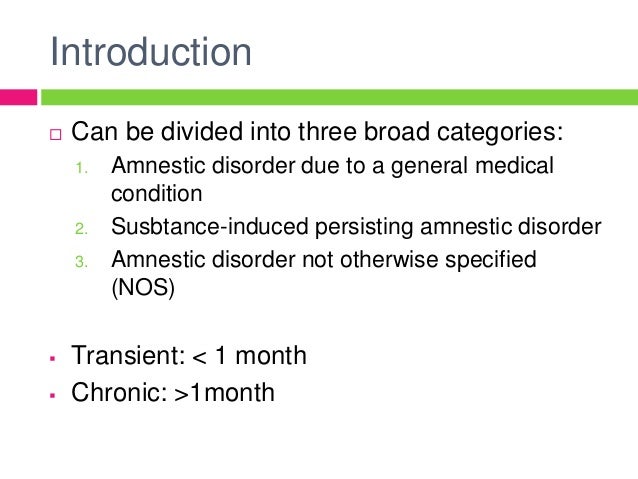
Amnestic disorder nos. There are no treatments that have been proved effective in most cases of amnestic disorder as of 2002. Major and Mild Neurocognitive Disorders. Major neurocognitive disorder replaces the DSM-IVs term dementia or other debilitating conditions.
Milder forms of cognitive disorders may be related to amnesia physiological conditions or short term psychological. Amnesia is a deficit in memory caused by brain damage or disease but it can also be caused temporarily by the use of various sedatives and hypnotic drugs. NOS is often a provisional diagnosis pending additional information or testing.
If you have amnesia you will have difficulty recalling facts events places or specific details. Rather individuals present with a circumscribed inability to recall previous memories usually of a traumatic or stressful nature. Since the causes of Amnestic Disorder is the other varied brain conditions and injuries in some cases treatment of the underlying disorder may help improve the accompanying amnesia.
There are two main types of amnesia. Another type of amnestic disorder known as substance-induced amnestic disorder can be caused by alcoholism long-term heavy drug use or exposure to such toxins as lead mercury carbon monoxide and certain. A pivotal addition is mild neurocognitive disorder mNCD defined by a noticeable decrement in cognitive functioning that goes beyond normal changes seen in aging.
Amnestic Disorders are a group of disorders that involve loss of memories previously established loss of the ability to create new memories or loss of the ability to learn new information1 In general Amnestic Disorders are caused by structural or chemical damage to parts of the brain. Amnestic Disorder Statistics Also Known As. Alcohol-induced amnestic disorder is most prominent in people whose age is 40 and above and has a long history of heavy alcohol drinking.
Retrograde amnesia and anterograde amnesia. Paul Peterson Licensed Therapist Statistics on Amnestic Disorder. By definition an amnestic disorder is due to the direct physiological effects of a general medical condition or substance use.
Memory Loss Statistics Senility Statistics Amnesia Statistics Alcohol Induced Persisting Amnestic Disorder Statistics Reviewed by. Amnestic disorder not otherwise specified NOS Transient. Treatment of Amnestic Disorders.
For an alphabetical list see DSM-IV codes alphabetical. The memory can be either wholly or partially lost due to the extent of damage that was caused. Cognitive impairment for which there is no plausible explanation or placed under the Not Otherwise Specified NOS Cognitive Disorder NOS Symptoms and DSM-IV Diagnosis nd category.
2948 Amnestic disorder NOS 2949 Cognitive disorder NOS Top 29389 Catatonic disorder due to. Amnestic disorder can occur due to a general medical condition or due to head trauma tumours stroke or cerebrovascular disease that is disease affecting the blood vessels in the brain. Other Cognitive Disorders Cognitive Disorder NOS.
Amnestic Disorder consists of memory loss which is isolated and does not cause other cognitive impairments. The primary symptom of amnesia is memory loss or inability to form new memories. Amnestic Disorder Due to a General Medical Condition.
Susbtance-induced persisting amnestic disorder 3. Amnestic disorders resulting from the abuse of drugs other than alcohol are most common in people between the ages of 20 and 40. Substance-Induced Persisting Amnestic Disorder.
The condition is attributed to occur due to an existing medical condition. Note that NOS is an abbreviation for Not Otherwise Specified indicating a cluster of symptoms that do not clearly fit in any single diagnostic category. 1 month Chronic.
Introduction Can be divided into three broad categories. Amnestic disorders related to head injuries may affect people in any age group. Alcohol-induced amnestic disorder is most common in people over the age of 40 with histories of prolonged heavy alcohol use.
Furthermore amnesia in Dissociative Disorders typically does not involve deficits in learning and recalling new information. It is a disorder that may progress to dementia - importantly it may not. AMNESTIC DISORDER BY GROUP 5 SUPERVISED BY.
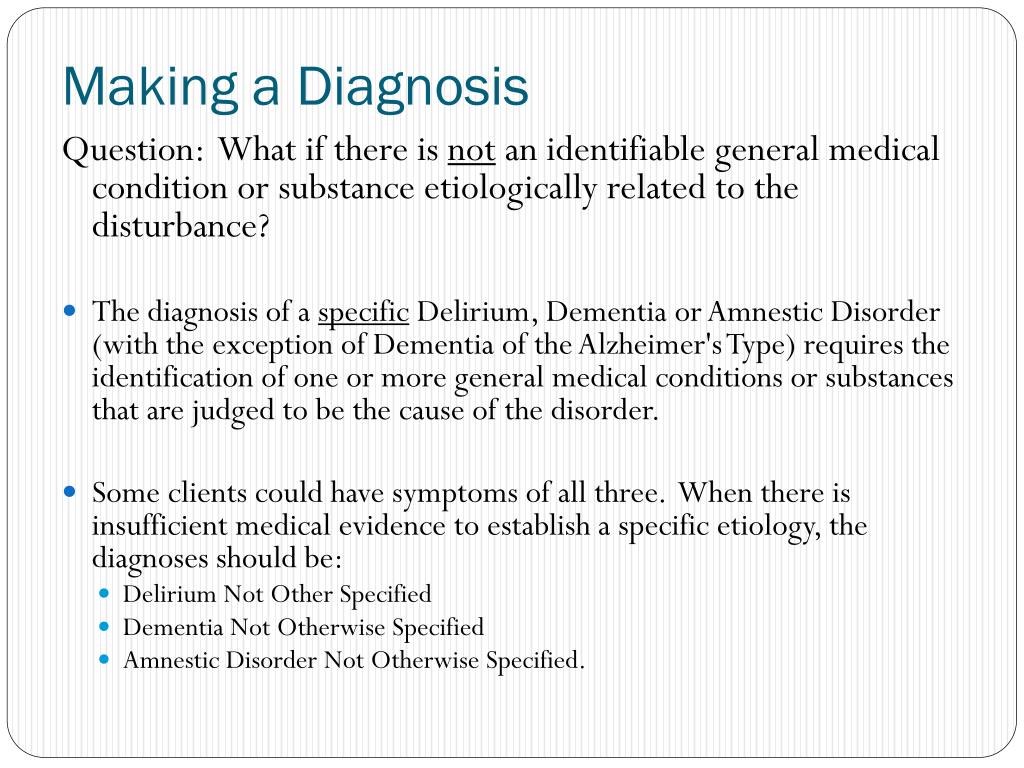
Ppt Delirium Dementia And Amnestic And Other Cognitive Disorders Powerpoint Presentation Id 4269216

Psychiatric Mental Health Nursing Cognitive Disorders Ppt Download
Amnestic Disorder Disease Malacards Research Articles Drugs Genes Clinical Trials
Dissociative Amnesia Fugue Memory Loss Caused By Trauma Or Stress
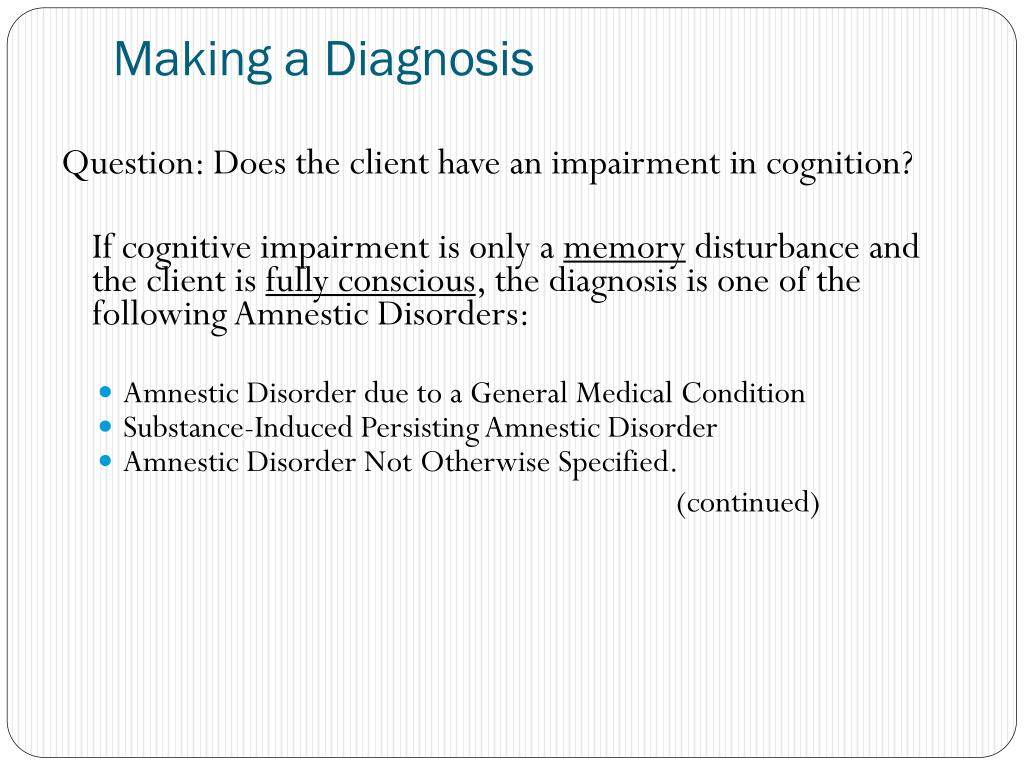
Ppt Delirium Dementia And Amnestic And Other Cognitive Disorders Powerpoint Presentation Id 4269216
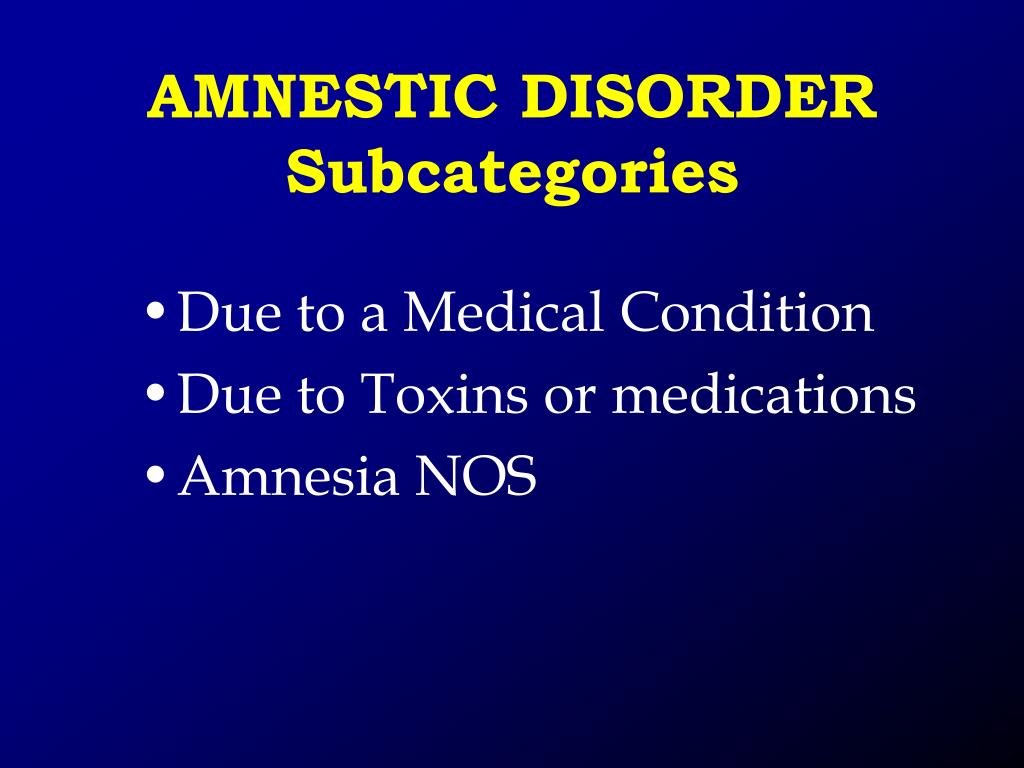
Ppt Delirium Dementia Amnestic And Other Cognitive Disorders Powerpoint Presentation Id 4040545
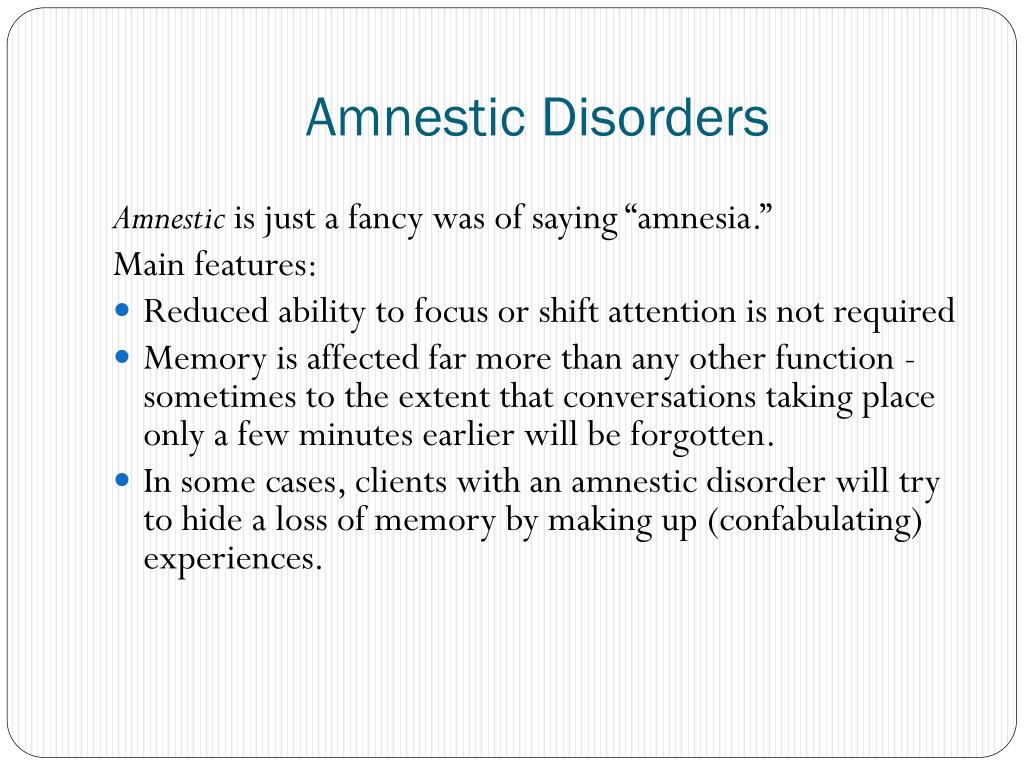
Ppt Delirium Dementia And Amnestic And Other Cognitive Disorders Powerpoint Presentation Id 4269216
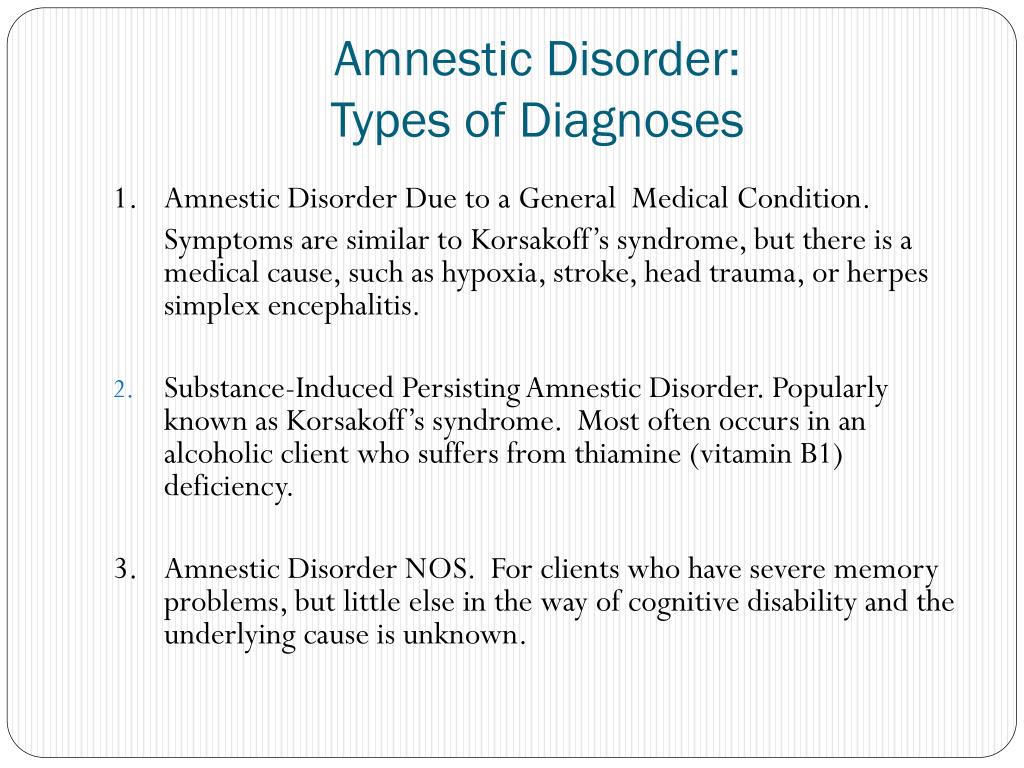
Ppt Delirium Dementia And Amnestic And Other Cognitive Disorders Powerpoint Presentation Id 4269216
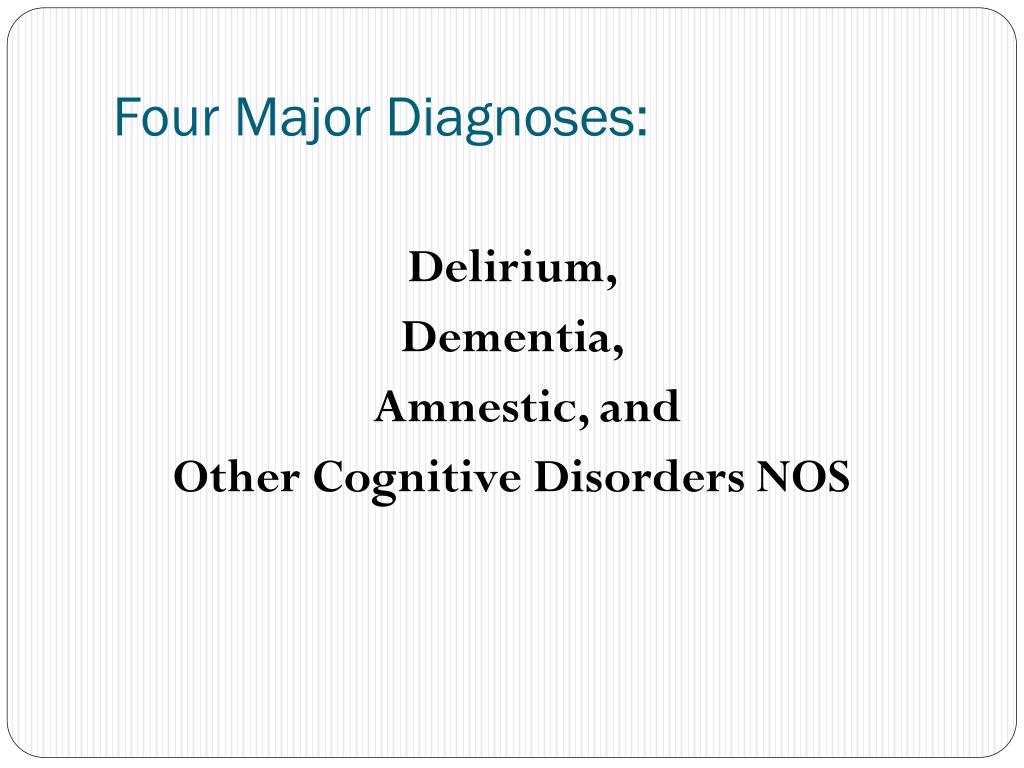
Ppt Delirium Dementia And Amnestic And Other Cognitive Disorders Powerpoint Presentation Id 4269216
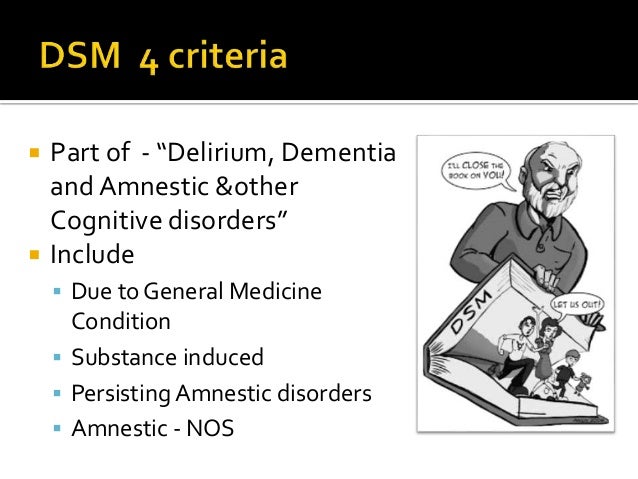
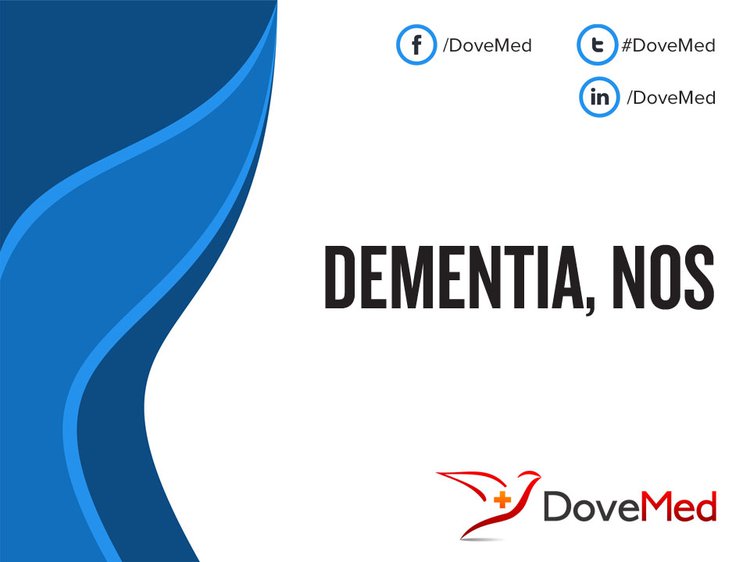
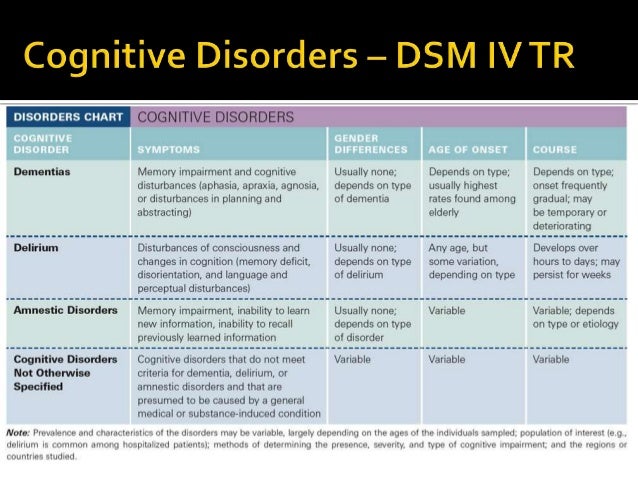
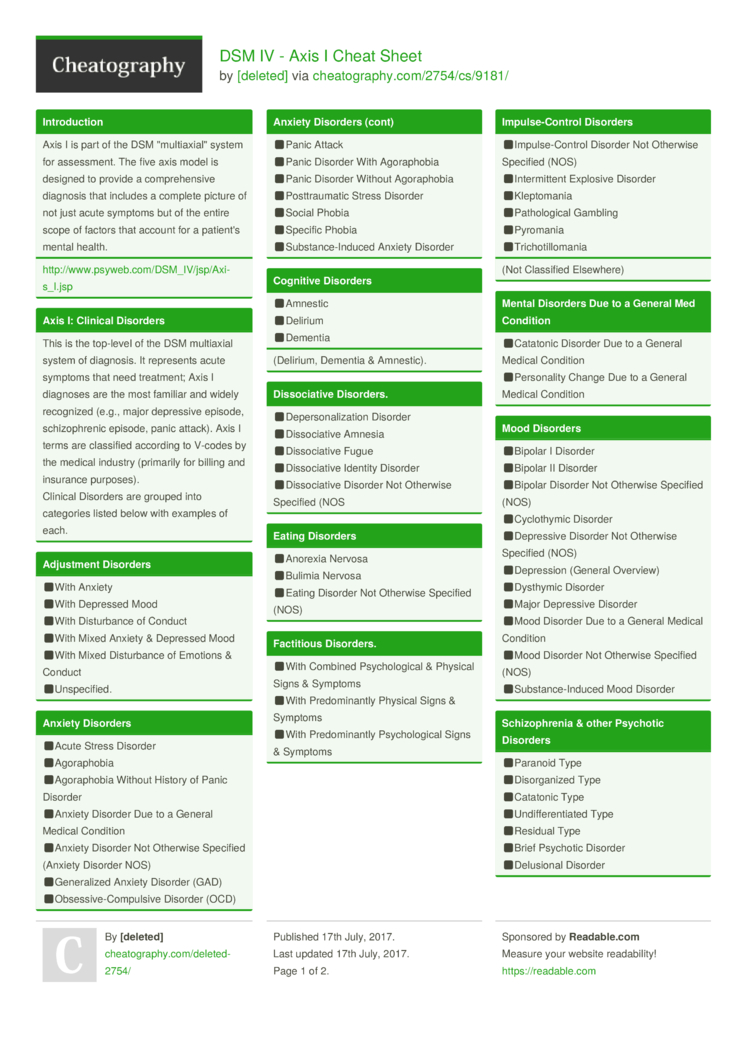
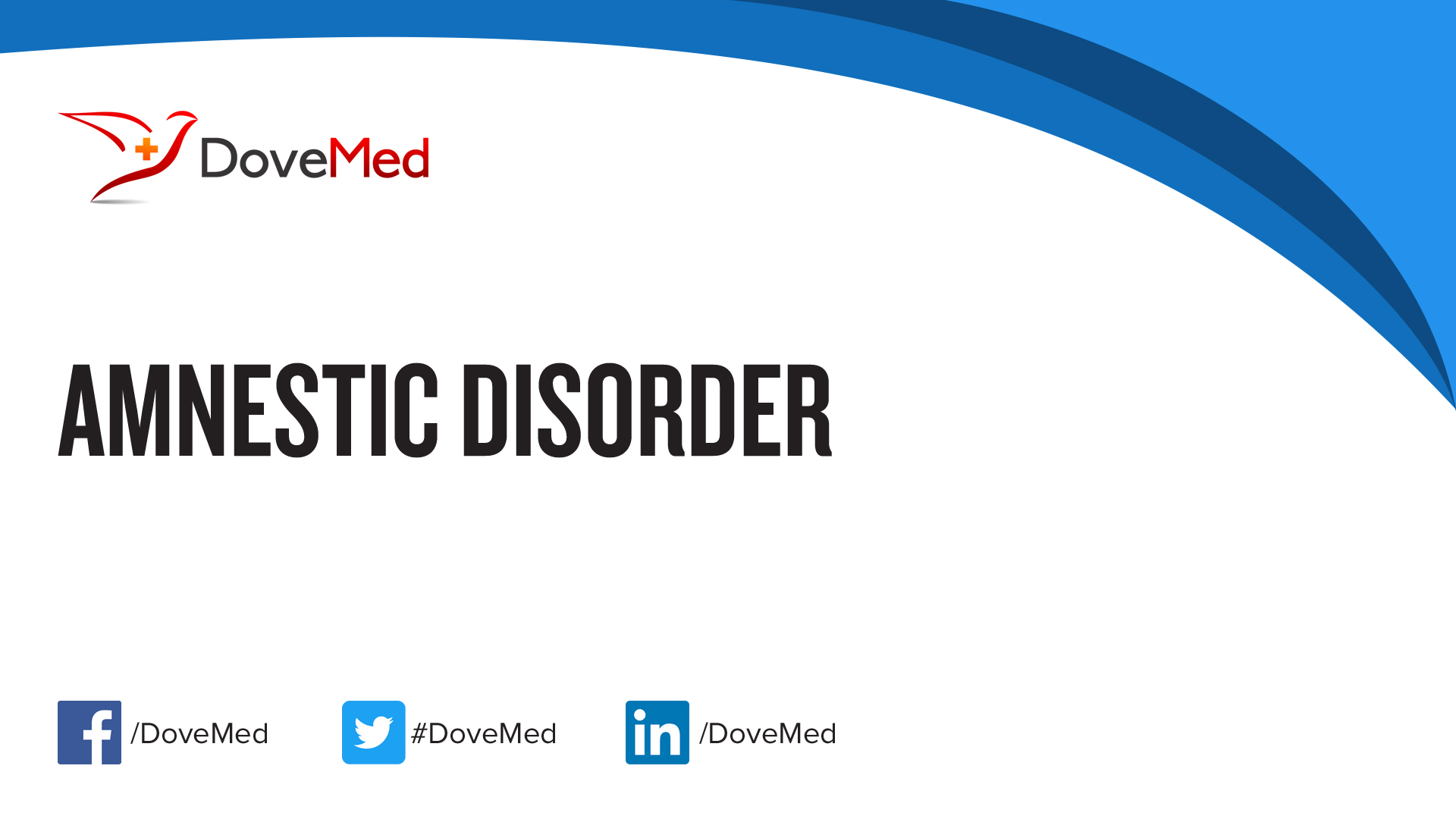
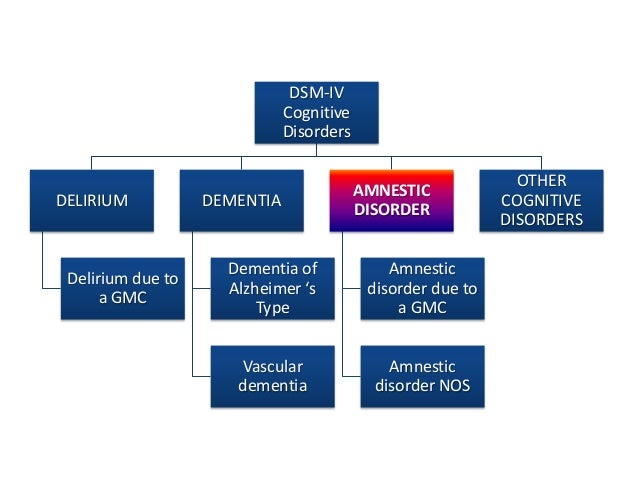

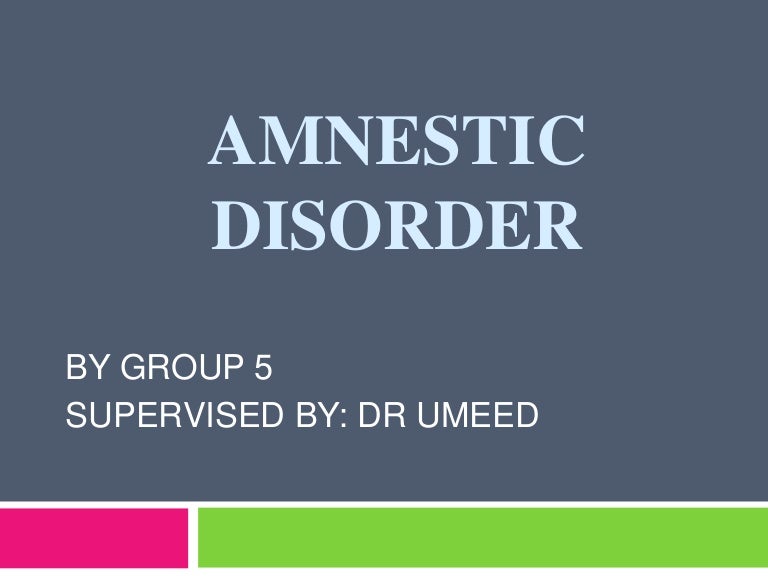
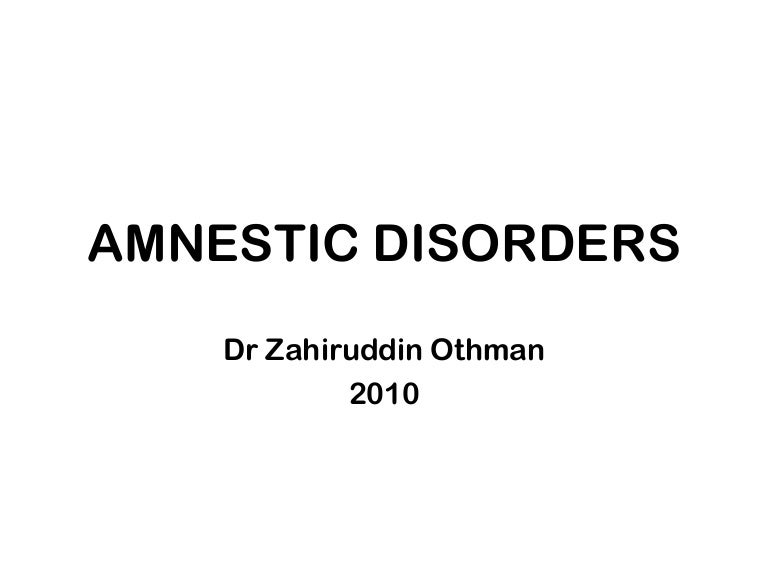
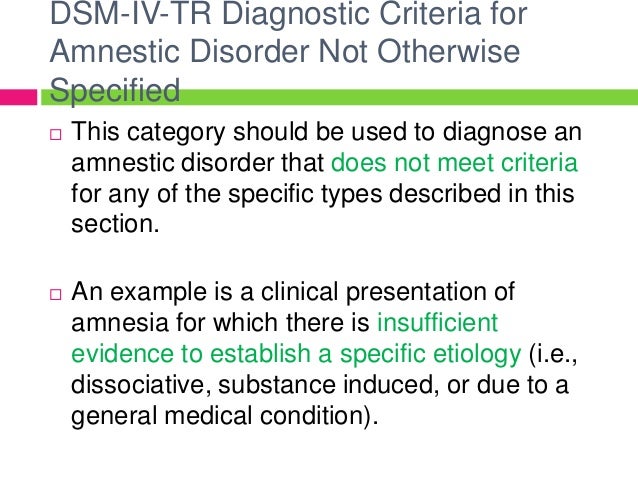
Post a Comment for "Amnestic Disorder Nos"